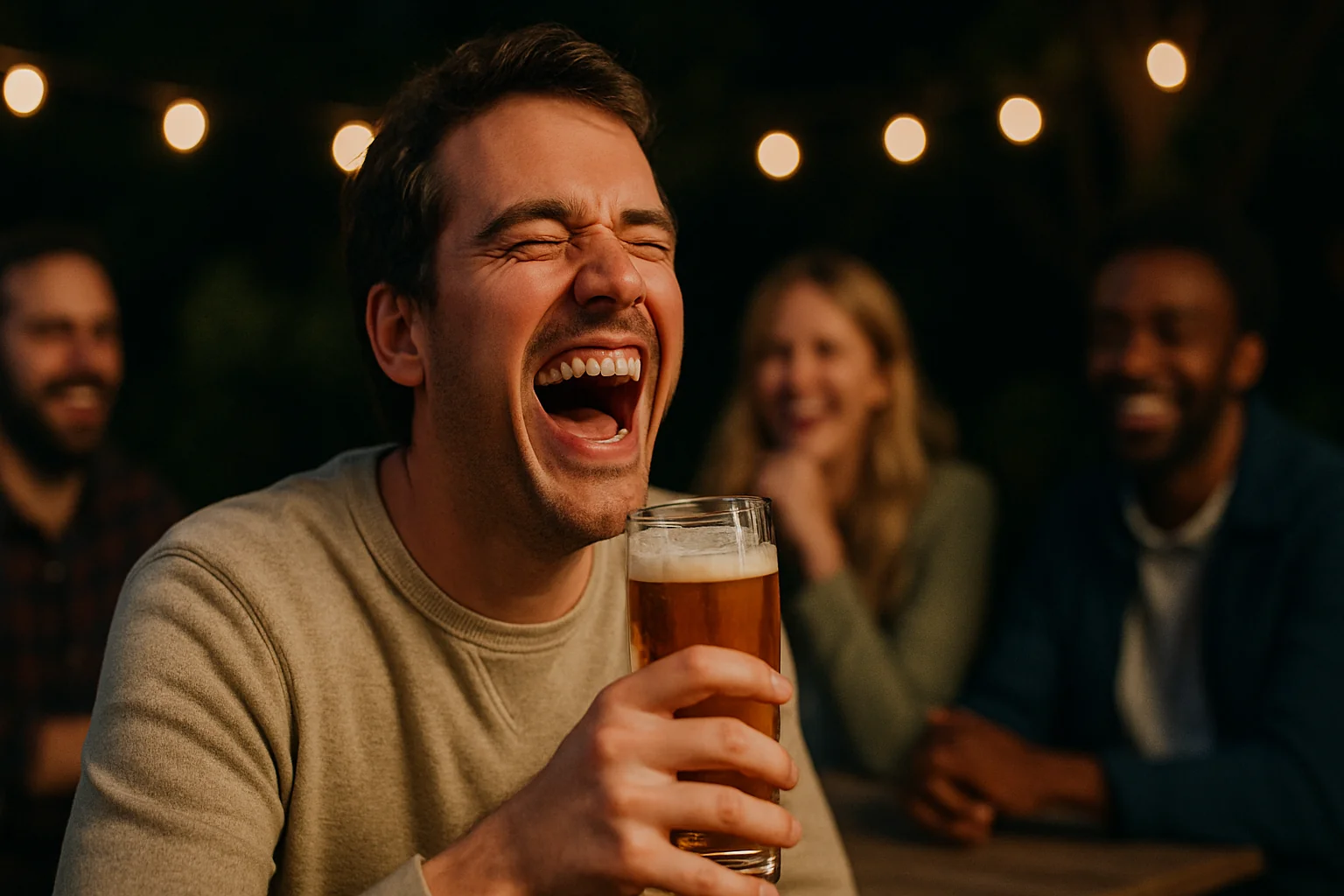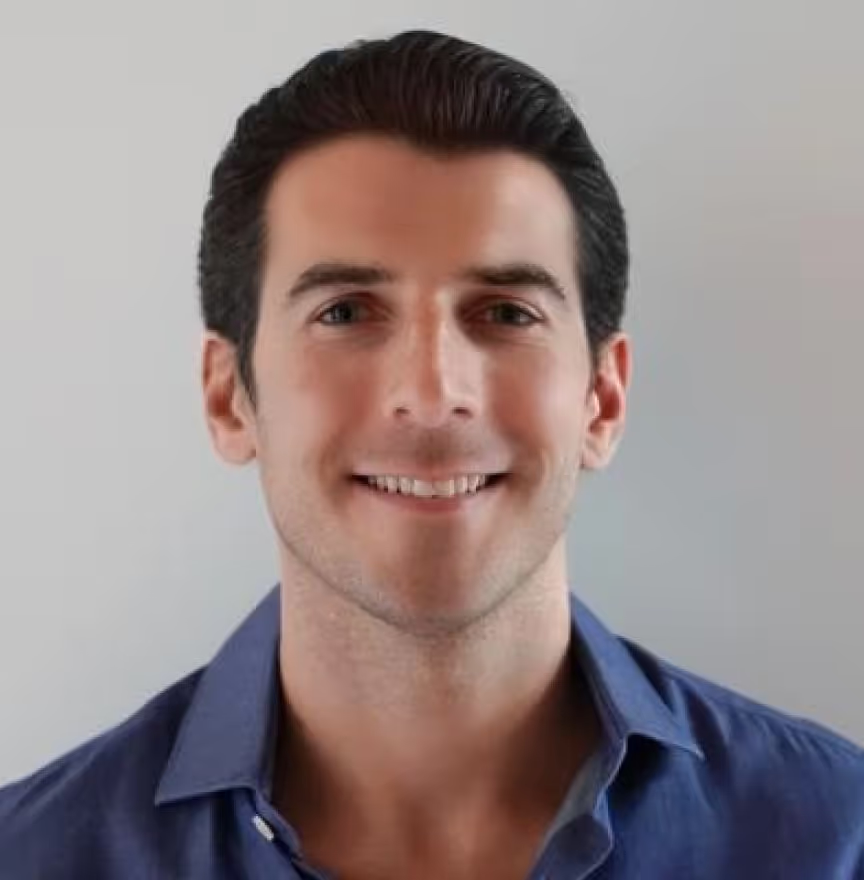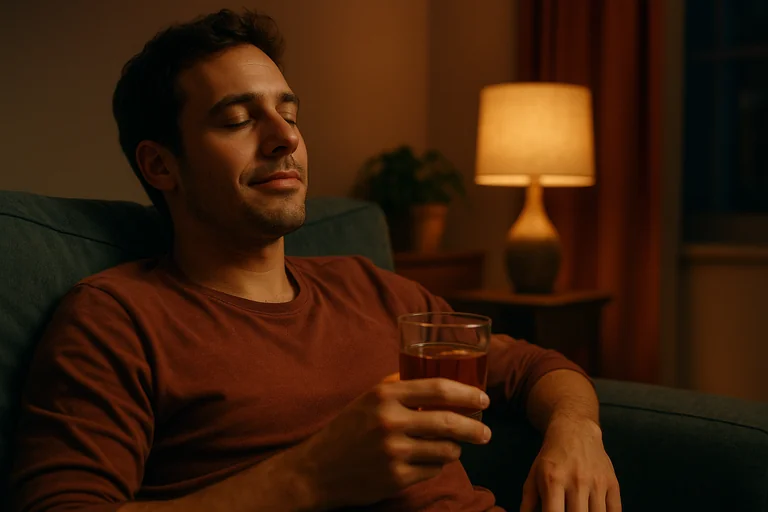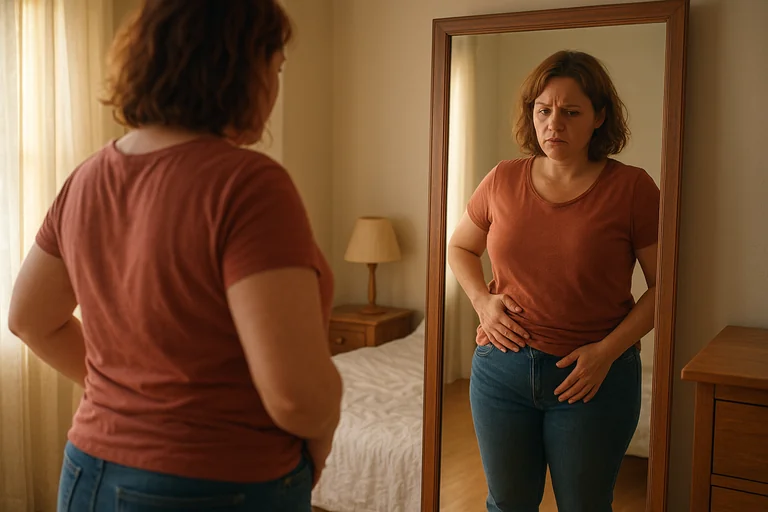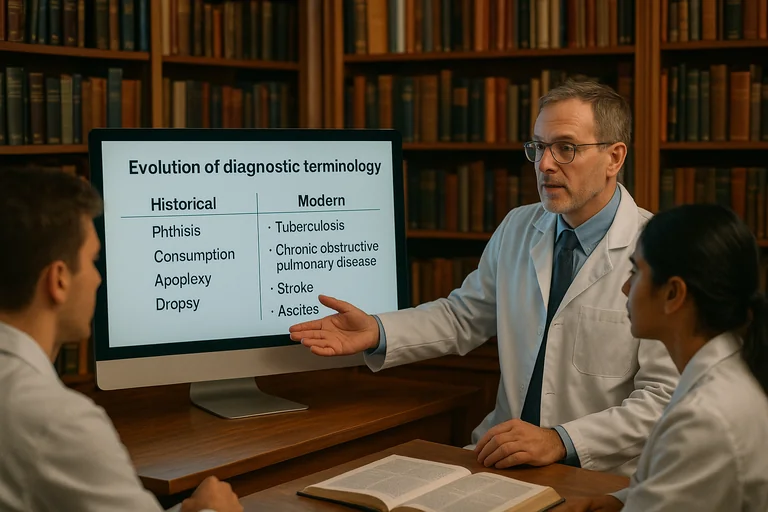A 2 minute assessment to get a personalized mental health or alcohol recovery plan.
Alcohol increases dopamine—your brain's "feel good" chemical—by up to double normal levels, but chronic drinking damages this reward system and creates cravings that keep you coming back for more.
What You'll Discover:
- How alcohol triggers the release of dopamine in your brain
- Why some people get a much stronger "buzz" from drinking
- How chronic drinking damages your brain's reward system
- Why quitting feels so hard when your dopamine is depleted
- How your brain can heal when you stop drinking
- Why naltrexone helps reduce alcohol cravings
The first thing to know is this: alcohol makes you feel good by releasing dopamine—a brain chemical that creates feelings of pleasure and reward. When you take that first sip, alcohol triggers a flood of dopamine in your brain's reward center, making you want to keep drinking.
Studies show dopamine levels can nearly double when people drink—and that powerful surge is what creates the "buzz" you're chasing. But here's the problem: chronic drinking devastates this system. Over time, your brain produces less dopamine naturally and has fewer receptors to receive it, creating a cycle where you need alcohol just to feel normal.
All that said, there's good news: about half of alcohol use disorder risk is genetic, which means your struggle isn't a personal failure—it's biology. Some people are wired to get 4 times more dopamine release from alcohol, making them dramatically more vulnerable to developing drinking problems.
The even better news: your brain can heal. With sustained sobriety, many of these changes reverse within weeks to months, and most people see significant improvement within a year.
How Alcohol Makes Your Brain Release Dopamine
Researchers have discovered that alcohol hijacks your brain's reward system in a specific way. It targets special channels in a brain region called the ventral tegmental area (VTA)—think of this as your brain's "dopamine factory."
What Happens When You Drink
When alcohol enters your brain, it blocks certain channels that normally keep your dopamine-producing neurons calm and quiet. With those brakes released, these neurons fire more rapidly and flood your brain's reward center with dopamine.
A study at the University of Illinois Chicago found something fascinating: when they reduced these specific channels in mice by just 22%, the mice drank 20-30% more alcohol to get the same dopamine reward. They were essentially chasing the same "high" but needed more alcohol to get there.
This is exactly what happens to heavy drinkers over time—you need more alcohol to feel the same effect.
Your Brain's Reward Center: Where the "Buzz" Happens
The nucleus accumbens is your brain's main reward hub. It's the region that lights up when you eat delicious food, win money, or do anything else that feels good. Alcohol causes a massive surge of dopamine here.
The Numbers Tell the Story
In animal studies, alcohol increased dopamine levels to 155-198% of normal baseline levels. Even small amounts of alcohol—the equivalent of one or two drinks—increase dopamine by about 40%.
But here's what makes alcohol unique: you get a dopamine hit in two ways.
The Two-Part Dopamine Boost
Alcohol is the only substance that triggers dopamine through both taste AND direct brain effects. A study at Indiana University gave men just a tiny taste of beer—not even enough to get any alcohol in their bloodstream—and found that the taste alone triggered more dopamine activity than a sports drink.
This means your brain starts releasing feel-good chemicals the moment beer touches your tongue, before you're even buzzed. Then, as the alcohol enters your brain, you get a second, longer-lasting dopamine surge. This one-two punch is what makes alcohol so reinforcing.
Why Some People Feel Alcohol More Than Others: The Genetic Factor
If you've ever wondered why some people can take or leave alcohol while others struggle to stop at one drink, genetics explains a lot of it.
About 50-60% of alcoholism risk comes down to your genes. Specific genetic variants can make alcohol's effects much more powerful for some people.
The "High-Reward" Gene
The most studied genetic variant is called OPRM1 118G. If you have this variant, research shows you get about 4 times more dopamine release from alcohol compared to people without it.
Think about that: someone with this gene gets four times the reward, four times the "buzz," and four times the motivation to keep drinking. It's not a willpower problem—it's biology.
Studies found that people with this gene report much stronger feelings of euphoria when drinking. They also showed a dopamine response to alcohol that was more than half as strong as what amphetamines produce. That's a powerful effect.
Family History Matters
If alcoholism runs in your family, you're likely more sensitive to alcohol's dopamine effects. Research at Columbia University showed that people with strong family histories of alcoholism released extra dopamine just from expecting to drink—even when they were given a placebo instead.
This heightened reward response runs in families, which is why children of alcoholics are at higher risk even before they take their first drink.
What Chronic Drinking Does to Your Dopamine System
Here's where things get difficult: heavy, regular drinking doesn't just give you temporary dopamine boosts—it fundamentally changes how your brain's reward system works.
Your Brain Adapts (and Not in a Good Way)
When you flood your brain with dopamine repeatedly, your brain tries to compensate. It does this by:
- Reducing the number of dopamine receptors (down by about 23% in heavy drinkers)
- Producing less dopamine naturally
- Clearing dopamine from your system more quickly
Human studies show that after 12 months of heavy drinking, dopamine release is significantly reduced compared to before. Your brain's reward system becomes depleted.
The Dopamine Deficiency Trap
This creates a vicious cycle. With less dopamine and fewer receptors, you can't feel pleasure from normal activities anymore. Things that used to make you happy—spending time with friends, hobbies, good food—just don't do it for you anymore.
This is called "reward deficiency syndrome," and it's why quitting feels so hard. You're not just fighting cravings—you're dealing with a brain that literally can't produce normal amounts of pleasure chemicals.
Research shows that alcoholics in early recovery have dopamine levels significantly below normal. Those with the lowest dopamine levels were most likely to relapse within three months, suggesting that this dopamine deficiency drives people back to drinking.
Your Brain on Alcohol Withdrawal
In the first week after quitting, dopamine levels can drop to just 30% of normal. This creates the flat, joyless feeling many people experience in early sobriety. Nothing feels good, everything feels gray, and your brain is screaming for the dopamine boost that alcohol provides.
This isn't weakness—it's neurochemistry.
How Your Brain's Natural Pain-Relief System Gets Involved
Alcohol doesn't work alone—it recruits your brain's natural endorphin system (the same system that creates "runner's high" and dulls pain).
The Endorphin Connection
When you drink, your brain releases beta-endorphins—natural "feel-good" chemicals. These endorphins then cause even more dopamine to be released, amplifying alcohol's rewarding effects.
Research shows that low to moderate doses of alcohol increase beta-endorphin release, creating pleasant effects. But high doses don't increase endorphins—which is why drinking too much stops feeling good and starts making you sick.
With chronic drinking, your brain's natural endorphin production drops. You become dependent on alcohol to produce endorphins, creating another layer of dependence.
How This Knowledge Led to Naltrexone
Understanding this endorphin-dopamine connection led to one of the most effective treatments for alcohol use disorder: naltrexone.
How Naltrexone Breaks the Reward Cycle
Naltrexone works by blocking the receptors that endorphins usually activate. When you take naltrexone and then drink alcohol, here's what happens:
- Alcohol triggers endorphin release (as usual)
- But naltrexone blocks those endorphins from attaching to their receptors
- Without endorphins activating those receptors, much less dopamine gets released
- You don't get the same "buzz" or rewarding feeling from drinking
What This Feels Like
People taking naltrexone report that drinking just feels... different. The "magic" is gone. One drink doesn't make them crave a second, third, and fourth. They can take it or leave it.
The landmark COMBINE study—the largest study of alcohol medications in the U.S. with 1,383 people—showed that naltrexone plus medical support led to 81% of days abstinent, compared to 75% with placebo. More importantly, naltrexone reduced heavy drinking days by 28%.
The number needed to treat is 12—meaning for every 12 people who take naltrexone, one additional person will avoid heavy drinking who otherwise wouldn't have. That's considered a strong effect for addiction treatment.
What Patients Say
People on naltrexone consistently report:
- Less "high" from drinking
- Reduced cravings
- Ability to stop after one or two drinks
- Less obsessive thinking about alcohol
These aren't just subjective feelings—they're the result of measurably lower dopamine release.
The Cognitive Cost of Damaged Dopamine
Beyond cravings and mood, dopamine damage affects your thinking.
Studies show that chronic drinkers have impaired:
- Memory and learning - Dopamine helps encode new memories and learn from experience
- Decision-making - The prefrontal cortex needs dopamine to weigh options and plan ahead
- Cognitive flexibility - Switching between tasks and adapting to new information becomes harder
- Impulse control - Saying "no" to that next drink requires dopamine signaling
Research on primates who chronically consumed alcohol showed that reduced dopamine correlated directly with impaired cognitive flexibility—their ability to adapt their behavior when circumstances changed.
In early withdrawal, when dopamine drops to 30% of normal, learning becomes nearly impossible. Your brain simply doesn't have the chemical resources to form new connections effectively.
This is why early sobriety is so challenging—not only does nothing feel good, but your brain is working at partial capacity.
Your Brain Can Heal: The Recovery Timeline
Here's the encouraging part: most of the dopamine damage from chronic drinking can reverse with sobriety.
Fast Recovery: The First Month
The quickest recovery happens with dopamine transporters—the proteins that clear dopamine from synapses. Studies show these return to normal levels within four weeks of stopping drinking, with the biggest improvements in the first four days.
This is why many people report starting to feel better after just a few weeks sober.
Medium-Term: 3-6 Months
Within three to six months, most people see:
- Improved mood and energy
- Better sleep quality
- Reduced anxiety and depression
- Clearer thinking and better memory
- Natural enjoyment starting to return
Your brain is rebuilding its dopamine system during this time.
Long-Term: One Year
After about a year of sobriety, dopamine levels typically return to normal in most people (though severity and duration of drinking affect this timeline).
Cognitive improvements continue throughout the first year, with executive function, memory, and decision-making showing steady gains.
Some Changes Take Longer
Research from Vanderbilt University shows that some adaptations persist even after 30+ days of sobriety. Your dopamine system may remain slightly altered for months or even years.
But this doesn't mean you won't feel better—it just means your brain retains some "memory" of heavy drinking. This is why maintaining sobriety gets easier with time, not harder.
What Helps Your Brain Heal Faster
Several things support dopamine recovery:
- Exercise - Physical activity naturally boosts dopamine production and receptor sensitivity
- Good nutrition - Your brain needs amino acids (from protein) to make dopamine
- Quality sleep - Dopamine receptors recover during deep sleep
- Stress management - Chronic stress depletes dopamine
- Medication support - Naltrexone and other medications can help during the recovery period
- Therapy and support - Behavioral therapy helps build new reward pathways
Research from NIAAA confirms that alcohol-induced brain changes can improve and even reverse with sustained abstinence, especially when combined with treatment and support.
What This Means for You
Understanding how alcohol affects dopamine explains so much about why cutting back or quitting feels difficult:
- It's not weakness when you crave alcohol—it's depleted dopamine
- It's not lack of willpower when one drink leads to many—it's the dopamine surge demanding more
- It's not being difficult when nothing feels fun in early sobriety—it's reward deficiency syndrome
- It's not hopeless if you have family history—treatment works regardless of genetics
The Path Forward
With the right support, your brain can heal. Naltrexone reduces the dopamine reward from drinking, making it easier to cut back or quit. Behavioral therapy helps build new sources of reward and pleasure. Time and sobriety allow your dopamine system to recover naturally.
Many people find that understanding the neuroscience removes shame and opens the door to effective treatment. This isn't a character issue—it's a brain chemistry issue, and brain chemistry can be addressed.
If you're struggling with alcohol and think medication might help, a quick assessment can show you whether naltrexone could work for you.
References
- PMC: How alcohol triggers dopamine in the brain
- University of Illinois Chicago: New alcohol target in the brain
- PMC: Brain reward neurons and alcohol
- PubMed: Alcohol's direct effects on reward neurons
- Nature: Alcohol amplification in the brain
- NIAAA: Brain science of addiction and recovery
- PubMed: Dopamine increases with alcohol
- PMC: Genetic differences in alcohol response
- PMC: How taste and brain effects both trigger dopamine
- Indiana University: Beer taste triggers dopamine
- Science Daily: Family history and dopamine
- PMC: Dopamine receptors and family history
- BMC Medical Genetics: Genetic variants in alcoholism
- PMC: Chronic drinking and brain changes
- PMC: How receptors stop working properly
- Nature: Sex differences in dopamine response
- PMC: Dopamine transporter changes with drinking
- Vanderbilt: Long-term brain changes after drinking stops
- Science Daily: Endorphins and alcohol
- Journal of Neuroscience: How endorphins increase dopamine
- Nature: Alcohol's effects on brain inhibition
- SAMHSA: Naltrexone for alcohol problems
- PMC: How naltrexone reduces dopamine from alcohol
- JAMA: Large naltrexone study results
- PMC: Thinking problems from dopamine damage
- PMC: Reward deficiency in alcoholism
- PubMed: Brain recovery after quitting
- Ardu Recovery Center: Brain healing timeline
